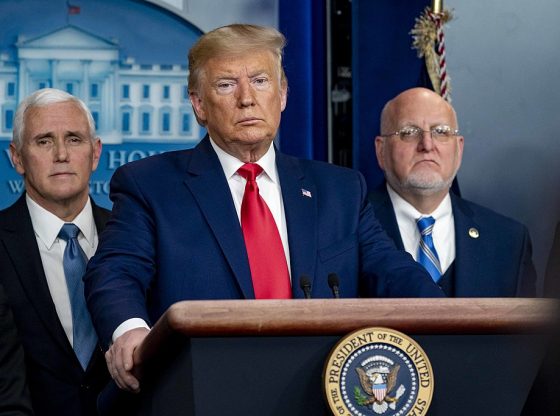President Trump is getting backlash from the liberal media after reports surfaced that the administration rejected multiple offers from Pfizer and German partner BioNTech to double their initial 100 million dose order of the vaccine.
Now that the company has sold its vaccine supply to allies in Britain, Canada, Japan, and Israel, the United States government will likely have to wait until next summer to procure additional doses.
Here’s why the critics are massively overreacting:
Pfizer’s ‘offer’
Former FDA commissioner and current Pfizer board member, Scott Gottlieb, commented that “Pfizer did offer an additional allotment coming out of that plan, basically the second-quarter allotment, to the US government multiple times.”
But White House Press Secretary Kayleigh McEnany told Fox News that, “it’s just simply not true that they offered extra doses, according to the people that are involved in the negotiations.”
“With each and every company we contracted for 100 million doses, so it’s just simply not the case that we were offered more and rejected them,” she concluded.
Vaccine Candidates
Through Operation Warp Speed, the Trump Administration invested billions of dollars to develop and purchase 100 million doses of each of the six vaccine candidates over the summer.
“Let me remind everybody what our strategy is and has always been: We selected six different vaccines to build a portfolio, to manage the risk that some may work and some may not work, but also to ensure that as more than one would work that we would accumulate vaccine doses from this portfolio of vaccines,” commented Moncef Slaoui, the chief science adviser of Operation Warp Speed.
Though Pfizer was first to apply for an emergency use order from the Food and Drug Administration, Moderna’s application review is only a week behind. Additionally, AstraZeneca’s vaccine has been shown to be “safe and effective,” but has not applied for emergency use. Sanofi-GlaxoSmithKline and Novavax’s offerings are currently in phase III trials, as is Johnson & Johnson’s game-changing single-dose vaccine.
“In the summer if somebody came to us and said, ‘Let’s buy more of this vaccine or that vaccine,’ no one reasonable would buy more from any one of those vaccines because we didn’t know which one would work and which one may be better than the other,” Slaoui remarked.
Cold Storage
Pfizer’s vaccine may be highly effective, but distribution is a logistical nightmare. The drug is required to be stored at an insanely cold -94F and must be shipped using isothermic boxes filled with dry ice.
Once hospitals and pharmacies receive the vaccine supply, they can store it in ultra-cold freezers, which are virtually non-existent or continue to refresh the dry ice for up to 15 days. To maintain a deep freeze, the boxes can only be opened twice a day and closed within less than a minute. The vaccine is so temperature-sensitive, Pfizer is already developing another version.
“We are working also on a new formulation that will be able to avoid the -70C (-94F temperature) and can be stored in simple refrigeration.” CEO Albert Bourla announced.
Option to Buy
Like with all the companies producing vaccine candidates, the government contracts include a clause that will allow the United States to purchase additional doses, in Pfizer’s case that number is 500 million.
On Tuesday President Trump signed an executive order that he said would “ensure the U.S. government prioritizes the getting out of the vaccine to American citizens before sending it to other nations.”
As Pfizer is an American based company, if all else fails, Trump has a plan: “If necessary, we will invoke the Defense Production Act if there are any problems with vaccine production.”











